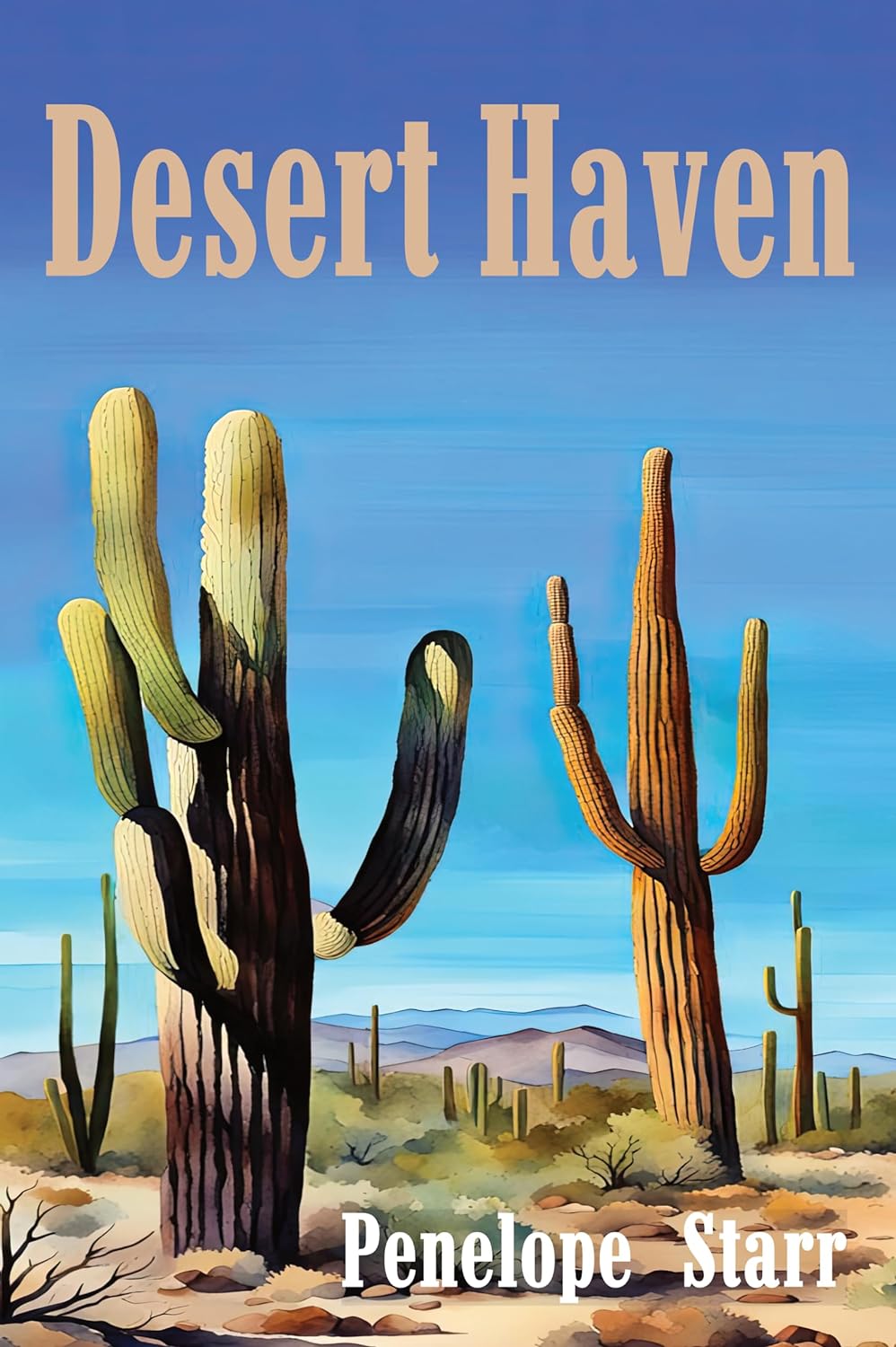Review of Desert Haven by Penelope Starr

Desert Haven
Penelope Starr
Rattling Good Yarns Press, 2024, 234 pages
$18.95
Reviewed by Sandra Butler
Penelope Starr is a gatherer of stories. Founder of Odyssey Storytelling, a community storytelling event now celebrating its twentieth year, she understands how our stories illuminate the commonalities of our lesbian lives while leaving lots of room for the unique and distinct way each woman makes and lives her choices. I was grateful to enter the world of women’s land with her as my guide. Starr is a lesbian equipped not with theories, hypotheses, or assumptions but with curiosity and admiration for the choices and experiences of the landdykes who come to life on these pages.
There has been much written analyzing, theorizing, and assessing the history of lesbians returning to live on the land, but very little from inside the lived experience of the lesbians themselves. The fifteen stories in Desert Haven introduce us to a wonderfully varied mix of women, each deserving of their own novel, and together, they blend into an ever-shifting patchwork of personalities, relationships, and communal life.
Originally conceived as a documentary film for which Starr did dozens of in-depth interviews, the means to create the documentary fell through; several of the women died or moved away, and others decided they didn’t want to be public. Starr took the raw material she had gathered and wrote a novel, Desert Haven, inspired by these lesbians and told their stories to a readership eager for them. She introduces us to this constantly shifting cast of characters in a series of first-person stories, helping us understand their motivations and need to be part of an all-lesbian environment that would support and nurture their lives.
The work at Desert Haven was unrelenting, and the resources were few. The decision to choose a financially marginal, physically demanding, and fiercely idealistic life took courage. Why did they come? What had they left behind, and what did they find in this new community with other women who had moved off the conventional grid to a life entirely away from the dominant culture in a world of their own making?
Some were fleeing abusive family lives, searching for direction and meaning; others were passionately separatist dykes, women who wanted a world without men and were hungry to come to rest in an all-women’s space. Some women moved to Desert Haven, put down roots and pulled them up again after a few seasons to move on to their next adventure. Each was dedicated to living life on her own terms and prepared to pay whatever price was required to do that. We watch them move in and out of relationships, fall fiercely in love, become friends, break up, or form lasting family bonds. We listen to their firmly held beliefs about equalizing resources and responsibilities and differing opinions about trans women on the land. Community meetings were alternately cooperative and contentious, and rituals were revered by some and dismissed by others. The honoring of Mother Earth was an organizing principle, even as the land was in an ongoing state of order and disorder.
The scaffolding for these stories is provided by JoJo, the welcoming and stabilizing woman who bought this piece of land and held it for any lesbian who needed to be there. We follow the ever-changing cast of characters from Dee, who arrived in 1977, to JoJo’s death in 2014 when her daughter-by-choice inherits this historic bit of land and is left to imagine what the future might look like. Luckily for us, Starr is working on that!
I remember those days in my own lesbian-feminist life. The urgency, the passion, and the commitment to making a life that would honor, value, and support every woman–whether we agreed with her or not! It was hard work then and continues to be hard work now. Yet it’s what is required of us as we dykes dream and imagine and create. I am grateful for Starr’s stories and these women. I saw a bit of myself in nearly all of them and marveled at their doggedness, their trust in one another, and the ways they created the dream of a different future in their lives.
Sandra Butler writes about whatever is still unspoken in women’s lives. The Kitchen is Closed: And Other Benefits Of Being Old is a collection of the musings of an old lesbian-feminist. Leaving Home at 83 will be published in October 2024.
"Empowerment comes from ideas."
― Charlene Carruthers
"Your silence will not protect you."
— Tourmaline
"Gender is the poetry each of us makes out of the language we are taught."
— Leila Raven


